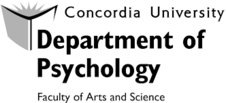
 Equity, Diversity, and Inclusion (EDI) have gained significant spotlight in academic circles over the past 10 years, highlighting how important they are. EDI is an umbrella term of all the approaches that aim to ensure equitable representation and inclusion of diverse views in scientific research and clinical practice. Its overarching goal is to produce science that is more equitable, representative, and, ultimately, more valid in benefiting all groups of society.
Equity, Diversity, and Inclusion (EDI) have gained significant spotlight in academic circles over the past 10 years, highlighting how important they are. EDI is an umbrella term of all the approaches that aim to ensure equitable representation and inclusion of diverse views in scientific research and clinical practice. Its overarching goal is to produce science that is more equitable, representative, and, ultimately, more valid in benefiting all groups of society.
The surge in attention towards EDI is mainly due to the mounting evidence showing the crucial role that diverse perspectives play in science. When our objective is to conduct research that authentically reflects the complexity of psychological sciences, it is always important to understand the intimate interactions between everyone’s life experiences, their perception of self, and their psychological outcomes. This deeper understanding empowers us to overcome the limits of our research processes, and enhances our ability to come up with outcomes that are universally applicable.
Most studies in the psychology field are conducted on a very specific population that represents a tiny proportion of the world’s population (about 12%): Western, educated, industrialized, rich and democratic (WEIRD) societies. While it was long assumed that fundamental cognitive, affective and motivational processes were shared across populations, we now know this is not the case. There is growing evidence that people from different societies vary greatly in several cognitive domains. Intentionally including participants from under-represented populations, and acknowledging the limitations of our studies in terms of generalisability, is crucial to understanding human nature in its full complexity.
EDI practices extend far beyond diversifying the pool of participants in research studies. They also encompass the composition of research teams themselves. As the saying goes, “WEIRDness” is in the eye of the researcher. When research teams are predominantly composed of people with similar backgrounds and views, the outcomes of their studies may be biased by these views! This could happen unintentionally, since researchers may implicitly make assumptions about their data (without being aware of this bias).
To address this limitation, we must take deliberate steps to diversify not only research participants but also the composition of research teams. By diversifying research teams themselves, we reduce the risk of introducing these types of biases into our scientific processes. Diverse teams bring a multitude of viewpoints, experiences, and interpretations, collectively enriching the analytical process and the generalizability of our findings.
EDI, with its emphasis on inclusivity, empowers us to voice our scientific opinions. A welcoming environment invites all valid opinions, and allows us all to contribute to scientific discourse. Academic workplaces are known for being uncomfortable places for some of their members, including members of the LGBTQIA+ community, indigenous people, women, people from ethnic minorities, have disabilities, or come from lower socioeconomic status. Comfortable scientists are the greatest kind of scientists. Therefore, we must aim towards more inclusive spaces where everyone feels comfortable with their personal identity.
EDI represents a commitment to dismantling barriers and prejudices that may impede progress in scientific fields, serving as a testament to the enduring value of inclusivity and acceptance.
The department of psychology of Concordia University has made tangible and admirable progress in addressing issues that diverse groups face. For example, an application fee reimbursement program has been implemented to foster a more inviting environment. The department also hosted its first event on “how to EDI”, a panel discussion aimed at educating on best practices in fostering a welcoming and equitable place.
In memory of Dr. Nadia Chaudhri, the department has launched the Nadia Chaudhri Wingspan award. The award recognizes individuals who may face hardship due to systemic issues. Dr. Chaudhri was a professor in the department, and a committed supporter of researchers coming from a variety of backgrounds, particularly those that have been underprivileged, marginalized, or historically underrepresented in the field.
In conclusion, Equity, Diversity, and Inclusion have emerged as central principles in academic contexts, making way for more representative, equitable, and impactful scientific research and clinical practices. We must continue with the great efforts that have been done in the department, and expand on them to create a welcoming environment for all academics. This will make the academic landscape undeniably better and contribute to the broader mission of fostering an inclusive society.
Authors
This article was co-authored by the CJAP team of the 2022-2023 edition. Zaki Alasmar (Editor in Chief), Cynthia Di Francesco, Isaac Romkey, Stefanie Tremblay.





Share this post
Twitter
Facebook
Email